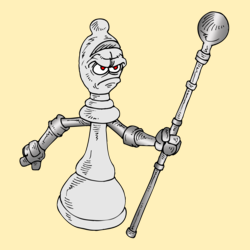 Simon Theobald, also known as Simon of Sudbury, was murdered on this day 629 years ago during the Peasants’ Revolt. Simon, who was born at Sudbury in Suffolk, became a chaplain to Pope Innocent VI after studying at the University of Paris. In 1361 he was appointed Bishop of London, and in 1375 he was appointed Archbishop of Canterbury. In 1378 to reformer and Bible translator John Wycliffe appeared before his to defend himself, supported by a noisy mob which gathered outside.
Simon Theobald, also known as Simon of Sudbury, was murdered on this day 629 years ago during the Peasants’ Revolt. Simon, who was born at Sudbury in Suffolk, became a chaplain to Pope Innocent VI after studying at the University of Paris. In 1361 he was appointed Bishop of London, and in 1375 he was appointed Archbishop of Canterbury. In 1378 to reformer and Bible translator John Wycliffe appeared before his to defend himself, supported by a noisy mob which gathered outside.
A flat-rate poll tax was introduced in 1377 to finance military campaigns overseas. A second version of this wildly unpopular tax was payable in 1379, and a third version in 1381. Simon of Sudbury had made the mistake of accepting appointment as Lord Chancellor in 1380, and accordingly he was regarded as one of the architects of the tax as well as being the person presiding over the corrupt church.
The Peasants’ Revolt started in Essex when some villages refused to pay the tax and attacked the tax collectors. A large mob from Essex and Kent marched on London under the leadership of Wat Tyler, Jack Straw, John Ball and others. On the 14th of June, some of the rebels stormed the Tower of London and beheaded Simon of Sudbury and the Lord Treasurer Robert de Hales. The leaders of the revolt were captured and executed, but subsequent British governments were careful to avoid calling any tax a “poll tax”.